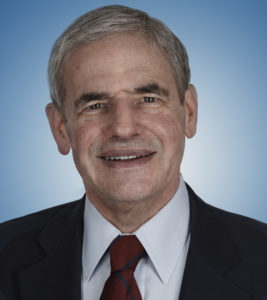Each week I collect the resources related to leadership I shared on social media the prior week, with the accompanying quotations.
……..
Stephen Joseph: An edited excerpt from his most recent book, Think Like a Therapist, (2022):
“Is It Time to Change Who You Think You Are? Start by asking yourself what you really value.” (12-31-22).
“When we are young, we learn to paint a picture of ourselves in our minds. We carry that picture around with us for the rest of our lives, what it looks like influences everything we do, and all the decisions we make. It becomes a self-fulfilling prophecy.”
……..
The four dimensions of “psychological capital” are self-efficacy, hope, optimism, and resilience.
Scott Dust:
“Why Does Coaching Work? An Evidence-Based Perspective: Coaching facilitates psychological capital.” (12-27-22).
“Across several recent studies, findings suggest that coaching facilitates what’s called ‘psychological capital’ (PsyCap for short). In what follows, I outline the four dimensions … and explain why coaching has the capacity to facilitate this positive development state.”
……..
Frank Sonnenberg: “5 Qualities of Great Leaders” (3-31-15).
“Great leaders are visionaries with a ‘can-do’ attitude. They take on the impossible, while their fearful colleagues look for the exits.”
……..
David Burkus: “How To Motivate The Unmotivated” (1-2-32).
“People want new experiences and new challenges. They want to feel that they’re making progress and they often judge that progress based on the projects they’re being given and whether those projects require them to learn new skills or merely execute the same routine functions.”
……..
Michael Lee Stallard:
“10 Ways to Improve Your Connection Skills” (6-16-15).
“Provide autonomy in execution. Monitor progress and be available to help your direct reports, but refrain from micromanaging unless they ask for specific help. …. This meets the human need for autonomy and allows people to experience personal growth.”
……..
McKinsey & Company:
“Three actions to boost frontline engagement and retention:
Frontline employees are struggling to build and maintain their networks at work. Leaders who support them are likely to see an impact on retention.” (10-21-22).
“Frontline employees drive significant value for organizations, but our research suggests they are struggling—in terms of engagement and building and maintaining networks at work—more than others. Leaders who effectively support these employees can see tremendous improvement in their ability to attract, mobilize, and retain their frontline talent.”
……..
Jim Detert: “Learn What You Don’t Know — and Act Meaningfully on It.”
From “Five Ways to Strengthen the Employee-Employer Relationship in 2023:
Organizational experts offer insights on how to make meaning” (12-28-22). Ally MacDonald.
“For decades, organizational behavior researchers have documented all sorts of negative outcomes associated with employees concluding that their contributions and ideas are going unheard or unvalued.
What to do?
Create a reasonably safe way for employees to give you unvarnished input to sufficiently open-ended questions.”




